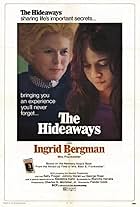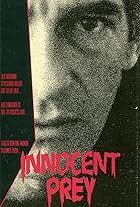
Chase_Witherspoon
Joined Nov 2005
Welcome to the new profile
We're still working on updating some profile features. To see the badges, ratings breakdowns, and polls for this profile, please go to the previous version.
Ratings1.2K
Chase_Witherspoon's rating
Reviews993
Chase_Witherspoon's rating
There's more than mere madness at this asylum as Dr Frankenstein (Cushing) discovers how to reanimate the dead by harvesting the vital organs of the living. Through a process of intelligent selection and aided by his enthusiastic protege (Briant), he sets out to create the perfect specimen with predictably disastrous results.
Cushing's timing is impeccable and despite being 60-years old, he's agile in body as he's sharp in mind, the scene where he leaps on the table and then launches a flying tackle at his demented creation is quite impressive. Youthful Briant's trademark posh elocution and pompous indifference is gradually replaced by a conscience for humanity as he grows more suspicious of the deranged Doctor's ethics, once his hero, now his fallen idol. And then lovely Madeleine Smith appears in almost every scene without uttering a word, similarly reticent but less lovely, brawny Dave Prowse and his hairy back hasn't much to say, but plenty of rage to display at his ghastly mistreatment as Dr Frankenstein's tragic human experiment.
The curtain was coming down as this Hammer horror went into production, stalwart Fisher's swan-song is a particularly gory effort, offering numerous dismemberments and other gruesome scenes made to order (throat slashing, wire hanging, eyeball gouging), although it appears to be done tongue in cheek with occasional gallows humour adding a chuckle or two amid the tension.
Overall it's a modest yet entertaining hammer horror hallmark that's eminently worthwhile, not least of all to see the likes of Dave Prowse pre-Darth Vader, post-Doctor Who Patrick Troughton, and even Bernard Lee in between MI-5 assignments in a small but important role as a withering mental patient with hands of a craftsman.
Cushing's timing is impeccable and despite being 60-years old, he's agile in body as he's sharp in mind, the scene where he leaps on the table and then launches a flying tackle at his demented creation is quite impressive. Youthful Briant's trademark posh elocution and pompous indifference is gradually replaced by a conscience for humanity as he grows more suspicious of the deranged Doctor's ethics, once his hero, now his fallen idol. And then lovely Madeleine Smith appears in almost every scene without uttering a word, similarly reticent but less lovely, brawny Dave Prowse and his hairy back hasn't much to say, but plenty of rage to display at his ghastly mistreatment as Dr Frankenstein's tragic human experiment.
The curtain was coming down as this Hammer horror went into production, stalwart Fisher's swan-song is a particularly gory effort, offering numerous dismemberments and other gruesome scenes made to order (throat slashing, wire hanging, eyeball gouging), although it appears to be done tongue in cheek with occasional gallows humour adding a chuckle or two amid the tension.
Overall it's a modest yet entertaining hammer horror hallmark that's eminently worthwhile, not least of all to see the likes of Dave Prowse pre-Darth Vader, post-Doctor Who Patrick Troughton, and even Bernard Lee in between MI-5 assignments in a small but important role as a withering mental patient with hands of a craftsman.
Low-budget thriller manages to punch above its bantamweight budget, director Lustig (under the watchful eye of Larry Cohen) constructs a grim fantasy of a slain hero police officer who returns to the streets to avenge his mistreatment.
Highly original comic book hokum is a lean but entertaining blend of horror, police procedural and action thriller featuring a quality cast who are mostly effective in spite of some banal dialogue. What 'Maniac Cop' lacks in logic, it makes up for with raging violence at every possible juncture, and despite first impressions teasing another 'Death Wish' or co-producer Glickenhaus' earlier vigilante rampage 'The Exterminator', its thematically closer to 'The Terminator' (though less sophisticated).
Principals Campbell and Landon are mediocre as the prime suspects in the violent executions, their roles written for action not characterisation, Atkins gives the cornerstone character performance as the compassionate detective working overtime to find the brutal slayer. James Dixon, John Goff, Frank Pesce and George 'Buck' Flower each have quirky little cameos which might pique the interest of exploitation buffs, whilst more mainstream leaning audiences should take comfort in the casting of Roundtree, Smith and North in significant supporting roles, their presence elevating this low-budget thriller, helping it to achieve the cult status it has since enjoyed (and which spawned two successful sequels) - although that's not to suggest it's a great film by any means.
The plot is dubiously lightweight with more holes than a golf course, the timing in the performances is occasionally but noticeably out of sync (some of the delivery sounds improvised), and whilst Don Hahn's score adds a gritty, nightmarish mood and the stuntwork is impressive, the generally amateur-looking set-ups make the film look more akin to a TV police show than a motion picture intended for the big screen. Personally I also would've liked to have seen more of statuesque Nina Arvesen as the perky news anchor whose one scene is disappointingly more brief than I expected of her character.
'Maniac Cop' is perhaps best described as a guilty pleasure of contrasts that's light on intellect, yet boasts impressive credits and despite darker implications, features relatively little to frighten or offend (e.g. No nudity).
Highly original comic book hokum is a lean but entertaining blend of horror, police procedural and action thriller featuring a quality cast who are mostly effective in spite of some banal dialogue. What 'Maniac Cop' lacks in logic, it makes up for with raging violence at every possible juncture, and despite first impressions teasing another 'Death Wish' or co-producer Glickenhaus' earlier vigilante rampage 'The Exterminator', its thematically closer to 'The Terminator' (though less sophisticated).
Principals Campbell and Landon are mediocre as the prime suspects in the violent executions, their roles written for action not characterisation, Atkins gives the cornerstone character performance as the compassionate detective working overtime to find the brutal slayer. James Dixon, John Goff, Frank Pesce and George 'Buck' Flower each have quirky little cameos which might pique the interest of exploitation buffs, whilst more mainstream leaning audiences should take comfort in the casting of Roundtree, Smith and North in significant supporting roles, their presence elevating this low-budget thriller, helping it to achieve the cult status it has since enjoyed (and which spawned two successful sequels) - although that's not to suggest it's a great film by any means.
The plot is dubiously lightweight with more holes than a golf course, the timing in the performances is occasionally but noticeably out of sync (some of the delivery sounds improvised), and whilst Don Hahn's score adds a gritty, nightmarish mood and the stuntwork is impressive, the generally amateur-looking set-ups make the film look more akin to a TV police show than a motion picture intended for the big screen. Personally I also would've liked to have seen more of statuesque Nina Arvesen as the perky news anchor whose one scene is disappointingly more brief than I expected of her character.
'Maniac Cop' is perhaps best described as a guilty pleasure of contrasts that's light on intellect, yet boasts impressive credits and despite darker implications, features relatively little to frighten or offend (e.g. No nudity).
Keith is fascinating as the eccentric Arizonian audio engineer with a dark past, his no-nonsense NYC-bred wife played with confidence by Moriarty, their scenes together warm and natural nothing appearing amiss until detectives start to take an interest in Keith for a string of violent murders in which the victims have been ritualistically dismembered (some of which the audience sees later in the movie).
Keith delivers a performance that's subtle when it needs to be, underscoring his ability to carry the weight of a film, something he was denied throughout most of his career. Smoky-voiced Moriarty is no slouch with the action sequences, showing she can walk and chew gum at the same time, although her character isn't very sympathetic and quite possibly a little unlikeable which is atypical for a female victim in these types of films.
Evans and Greene have chemistry as (almost) seen-it-all CID detectives sent from Phoenix to catch the killer, Evans for some reason wears a bright red beret which in itself is odd, but more unusually, it goes unacknowledged by any of the characters as if it's just regular, everyday wardrobe for a suit-wearing city detective.
Also of note is Hayashi as the local police deputy whose got more than a pile of body parts with which to contend, as the audience gets up close and personal as he flosses then applies talcum powder to his armpits. His commitment to hygiene is commendable, although I'm not sure how it advances the plot in any way. The film could've easily been 15 minutes leaner if these types of superfluous scenes had been excised, but then I guess it adds quirkiness which some audiences will appreciate.
Stylistically it's impressive and not dissimilar to Michael Mann's use of colour and sound (e.g. 'Manhunter') but it's also florid and flagrantly self-indulgent, textured by dubious symbolism and allusions to something mystical that's deeper than the storyline ever truly delves.
Artistically original, the plot isn't always coherent and if you're looking for elaborate nonsense, you'll find it in 'The White of the Eye'. A triumph of style where the only substance is whatever the makers were taking when it was conceived.
Notwithstanding, if you can focus long enough through the chaotic plot and accept that 'high concept' transcends logic, there's a pretty surreal payoff in the last act, although like the rest of the movie it's unconventional and unlikely to satisfy all tastes.
Keith delivers a performance that's subtle when it needs to be, underscoring his ability to carry the weight of a film, something he was denied throughout most of his career. Smoky-voiced Moriarty is no slouch with the action sequences, showing she can walk and chew gum at the same time, although her character isn't very sympathetic and quite possibly a little unlikeable which is atypical for a female victim in these types of films.
Evans and Greene have chemistry as (almost) seen-it-all CID detectives sent from Phoenix to catch the killer, Evans for some reason wears a bright red beret which in itself is odd, but more unusually, it goes unacknowledged by any of the characters as if it's just regular, everyday wardrobe for a suit-wearing city detective.
Also of note is Hayashi as the local police deputy whose got more than a pile of body parts with which to contend, as the audience gets up close and personal as he flosses then applies talcum powder to his armpits. His commitment to hygiene is commendable, although I'm not sure how it advances the plot in any way. The film could've easily been 15 minutes leaner if these types of superfluous scenes had been excised, but then I guess it adds quirkiness which some audiences will appreciate.
Stylistically it's impressive and not dissimilar to Michael Mann's use of colour and sound (e.g. 'Manhunter') but it's also florid and flagrantly self-indulgent, textured by dubious symbolism and allusions to something mystical that's deeper than the storyline ever truly delves.
Artistically original, the plot isn't always coherent and if you're looking for elaborate nonsense, you'll find it in 'The White of the Eye'. A triumph of style where the only substance is whatever the makers were taking when it was conceived.
Notwithstanding, if you can focus long enough through the chaotic plot and accept that 'high concept' transcends logic, there's a pretty surreal payoff in the last act, although like the rest of the movie it's unconventional and unlikely to satisfy all tastes.


























